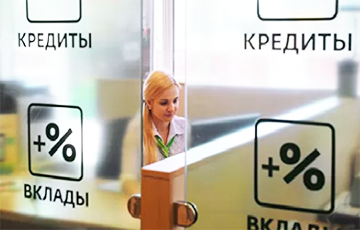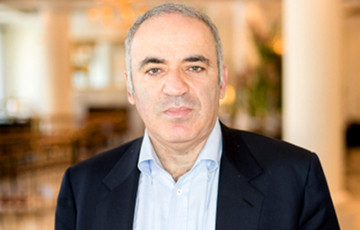"Withdraw Money From Deposits Before It's Too Late"
25- 1.09.2020, 15:30
- 115,471

How politics kills the Belarusian ruble.
Belarusian Maksim Bahdanovich, who is currently studying at Harvard, read the Belarusian "authorities" statements that the local ruble will survive despite everything – and doubted the truth. So he wrote a big post-forecast of how this very ruble will try to save, writes kyky.org.
"The ruble is falling for political reasons. The most logical step for the authorities in this situation is to introduce restrictions on capital transactions. What does it mean? If you are an ordinary person, you will not be able to cash out your deposit, and if you are a businessman, you may be required to sell foreign currency earnings or keep rubles in your account for a few days before converting to foreign currency – some nightmare will definitely come up. But it's not likely to help them.
On Thursday, as always, I heard happy encouraging that "the authorities will not allow the collapse of the national currency." It is a pity that my professors taught me to question such judgments. I decided to investigate a little: are they not going to allow it? And how will they not allow it? Why is the ruble falling at all? Some results of my speculations are below.
The "bunny" is falling, and you have to admit. In August, the ruble managed to break the historical low and dropped about 10% against the dollar. There are already interruptions in currency availability in exchange offices; bankers say that the demand for currency among the population has increased 5-fold. Trading in the dollar on the BSE exchange set a historical high and amounted to 1.1 billion dollars in August. Why?
Looking at the National Bank statistics, we can see that this fall has no economic prerequisites comparable to 2011. In such cases, economists usually look at the reserves, which according to the National Bank statistics on August 1, amount to $8.9 billion. In a recent article by Anders Aslund about Belarus, $9 billion covers about three months of imports. Accordingly, this is not so bad, especially considering that in 2011 Belarus had $3.7 billion in reserves. At the same time, it should be taken into account that this is an optimistic scenario in which the National Bank did not spend our reserves for August on the same market interventions, for example.
So what's going on? If it's not economics, it's probably politics. At the moment, the devaluation panic is caused by the political crisis. People do not trust the authorities who have lost their legitimacy and try to moor their savings in a quiet green harbor. The political crisis does not see an immediate resolution – a familiar character declares that he must be killed to wait for changes. Accordingly, if political progress is "only over my dead body," then the authorities have only economic ways to calm the situation. The only problem is that they probably won't help.
Now the national Bank has three ways to slow the fall of the ruble:
Buying the ruble on the stock exchange at the expense of reserves
"Tightness" of the ruble's liquidity
Introduction of restrictions on capital transactions.
In other words: either buy the ruble yourself, or make it so that there was nothing to sell, or prohibit the purchase and sale completely. Of course, there are also marginal, but less effective ways: raising the stakes and the infamous printing press. The first one is unlikely to help much, but the machine… And we all saw the machine.
The authorities went the second way: "the National Bank decided to temporarily suspend permanently available liquidity support operations from August 24 to September 15, 2020." After all, every smart Belarusian understands that taking a loan in rubles and immediately converting it into a currency is a good financial decision in the conditions of a galloping exchange rate. It turns out that this is a national currency short. We don't need Soros, we are a collective Soros.
So what will the authorities do next? Based on international experience, the next logical step to stabilize the Belarusian ruble's exchange rate is the introduction of restrictions on capital transactions by the regulator. For example, this is a ban on the population to withdraw deposits, mandatory sale of foreign currency earnings, mandatory conversion of foreign currency deposits into Belarusian rubles, the mandatory deposit of rubles in accounts before conversion to currency, among other horrors.
This is the easiest way to prevent the collapse of the banking system. When people in a panic come to collect their deposits, and the Bank says: "There is no money, but you are holding on" - this means that the Bank is bankrupt and should be recognized as such by the regulator.
It would seem that the usual situation is the bankruptcy of one Bank, but not in our case: we do not have any bank liquidity, as the regulator does not give it (so the rates at cash auctions reach up to 18%). When banks are unable to pay back the money they have left, it is a collapse of the banking system. And since almost most of the Republic of Belarus banks are state-owned, this is a big blow to the state — because they will have to be supported either by capital at the expense of the budget or by liquidity which market immediately converts into currency.
In this unpleasant situation, capital controls are the easiest way to prevent collapse — you don't need to worry about whether banks have money, if you can just forbid the population to take it! We are already seeing the first news: there are only 24 active banks in Belarus, and about 9 have already stopped issuing loans. This is the first step in trying to stop the outflow of money. Then there will be local restrictions for specific banks, and then restrictions from the regulator, which I am writing about.
Thus, the National Bank has a zugzwang. On the one hand, to prevent a banking collapse, you can start issuing liquidity to banks and, consequently, to the population. But this will lead to an increase in the exchange rate due to the fact that people will immediately carry this currency to the exchange office. On the other hand, to prevent the growth of the exchange rate and Bank collapse, you can introduce restrictions for all at once — capital controls. The catch is that, given our political situation, such harsh measures will definitely not find public support and will probably come back like a boomerang.










